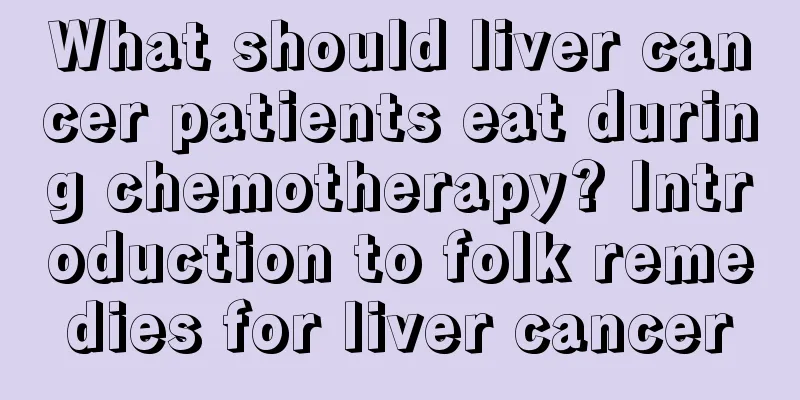Will paget breast cancer recur after resection?

|
Paget breast cancer may still recur after resection. Regular follow-up and adjuvant therapy are needed to reduce the risk of recurrence. The cause of recurrence may be related to residual tumor, lymph node metastasis or pathological type. Chemotherapy, radiotherapy or targeted therapy should be taken according to the specific situation after surgery. 1. Tumor residue is one of the main reasons for Paget breast cancer recurrence. During surgery, some cancer cells may remain due to unclear tumor boundaries or extensive infiltration. Postoperative pathological examination can evaluate the resection margin. If tumor residue is found, a second surgery or enhanced adjuvant therapy is required. Postoperative patients should strictly follow the doctor's instructions for follow-up examinations, including breast ultrasound, mammography or MRI examinations, to detect abnormalities early. 2. Lymph node metastasis is also an important risk factor for recurrence. Paget's breast cancer is often accompanied by axillary lymph node metastasis, and sentinel lymph node biopsy or axillary lymph node dissection is required during surgery. If lymph node metastasis is found, systemic treatment such as chemotherapy or targeted therapy is required after surgery to eliminate potential metastatic lesions. Patients should pay attention to whether there are lumps or pain in the axillary area after surgery, and seek medical examination in time. 3. Pathological type is closely related to the risk of recurrence. The pathological types of Paget breast cancer include simple type and invasive type, among which the invasive type has a higher risk of recurrence. After surgery, an individualized treatment plan should be formulated according to the pathological results. For example, hormone receptor-positive patients can receive endocrine therapy, and HER2-positive patients can receive targeted therapy. Patients need to adhere to long-term treatment and regularly monitor hormone levels or HER2 expression. 4. Postoperative adjuvant therapy is a key measure to reduce the risk of recurrence. Chemotherapy can kill residual cancer cells, radiotherapy can reduce local recurrence, and targeted therapy can inhibit specific molecular pathways. The treatment plan needs to be formulated comprehensively according to the patient's age, pathological type and stage. After surgery, patients should actively cooperate with treatment and maintain good living habits, such as quitting smoking and limiting alcohol, eating a balanced diet, exercising moderately, and enhancing immunity. The risk of recurrence after Paget breast cancer resection needs to be taken seriously. After surgery, a comprehensive treatment plan should be formulated based on pathological results and individual conditions, with regular follow-up and adjuvant treatment. At the same time, a good lifestyle should be maintained to minimize the risk of recurrence and improve long-term survival. Patients need to maintain close communication with doctors and adjust treatment plans in a timely manner to ensure treatment effectiveness. |
<<: What is gynecological teratoma and what are its symptoms
>>: Symptoms of dying from advanced prostate cancer
Recommend
How long should the quadruple therapy be taken
With the development of medicine, more and more d...
Where does colon cancer pain usually occur? Take care of it like this after the pain
Where does the pain of colon cancer usually occur...
Early bone cancer can cause lumps in local bone joints
When patients show symptoms of early bone cancer,...
What disease is it that makes me cough for a long time?
Cough is a relatively common symptom. Generally s...
What are the sequelae caused by radiotherapy for nasopharyngeal carcinoma?
What are the sequelae caused by radiotherapy for ...
Introduction to the best treatment for small cell lung cancer
Small cell lung cancer is a disease that occurs i...
How to use electric mosquito coils safely
Electric mosquito coils are a product without any...
What to eat when you are under stress and losing hair
People on Weibo often lament that they are losing...
Does liver pain mean liver cancer? Several reasons for liver pain explained in detail
Many people think that liver pain is a symptom of...
What are the effects of grapefruit inner skin
When eating grapefruit, everyone will throw away ...
What are the diets for colorectal cancer turning into liver cancer
Colon cancer is a relatively common type of color...
Is there any relationship between nasopharyngeal carcinoma and rhinitis? What are the early symptoms of nasopharyngeal carcinoma?
Is there any relationship between nasopharyngeal ...
How to treat shoulder adhesion
The treatment of shoulder adhesion includes surgi...
How long does it take to recover from a chin augmentation
Plastic surgery is quite popular nowadays because...
How long after teratoma surgery can I walk and exercise normally?
It usually takes 1-2 weeks to recover after terat...









